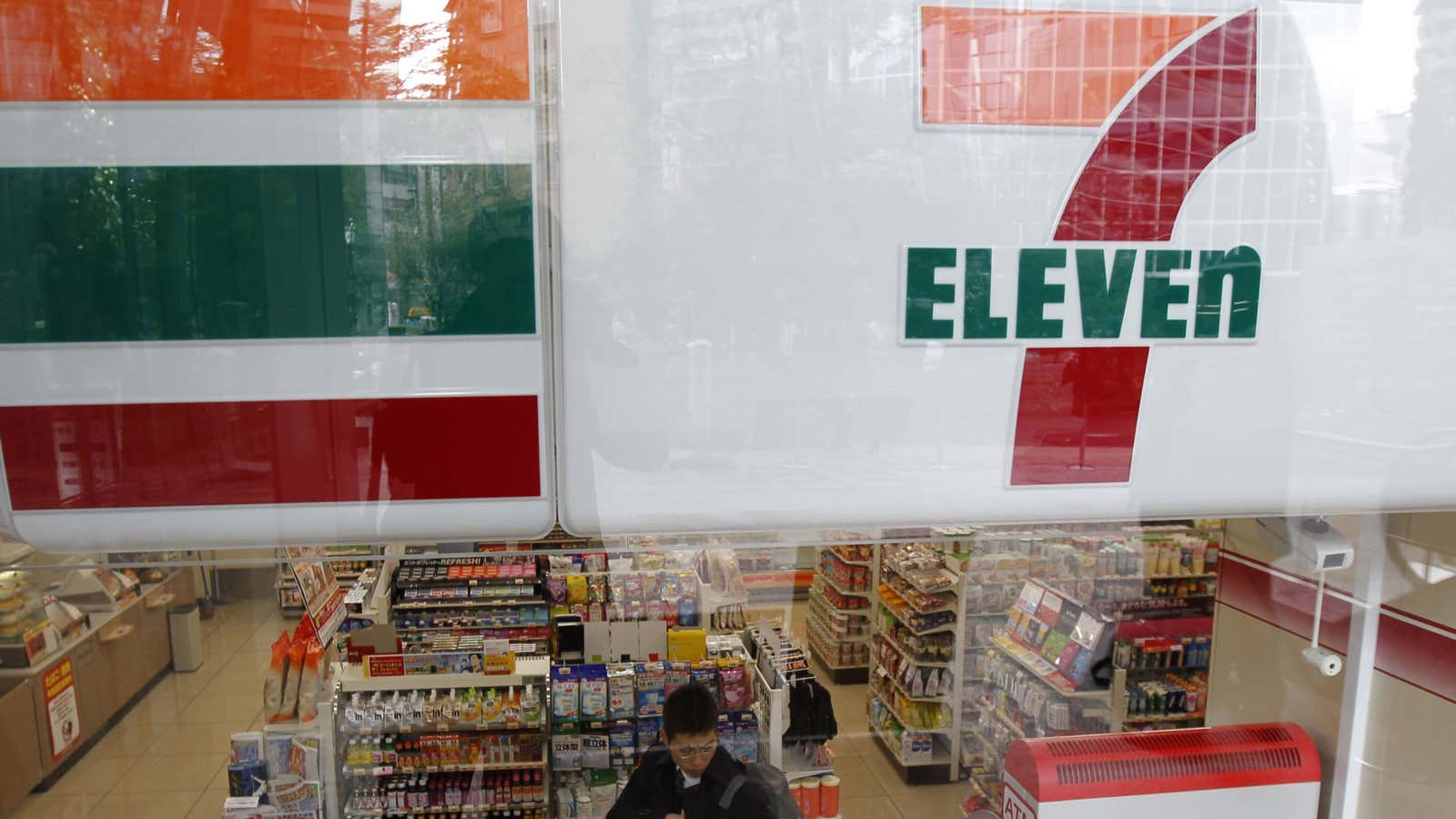The world’s largest convenience store is all set to enter India.
On Feb. 28, Japanese-owned, US-headquartered chain 7-Eleven said it has partnered with the Kishore Biyani-led Future Group to bring the corner stores to the world’s second-most populated country. It will open its first Indian store in Mumbai later this year.
“The deal, in our view, is positive, as it not only shows 7-Eleven’s confidence in the capability of (Future Retail) in India, but it will also benefit the company through access to global technology and processes,” research firm Jefferies’ India said in a note on Thursday (Feb. 28).
The convenience retail behemoth operates upwards of 67,000 outlets across 17 countries. In India, the franchise agreement will be executed via SHME Food Brands Private Limited, a wholly-owned subsidiary of the Future Retail. The agreement is slated to last 80 years.
Stronger together
In a country where unorganised retail—local mom-and-pop stores and standalone outlets—has captured 93% of the market, branded convenience stores are few. However, experts believe that 7-Eleven has found the right guide to succeed in India.
“Future Group is the pioneer of organised retail in India with vast experience in retailing segments such as foods, fashion, and personal care,” wrote Tanmay Sharma and Varun Lohchab, equity analysts at Jefferies. “Apart from this, it has the expertise in terms of selecting the right location coupled with better rental negotiations (operates around 24 million square feet of retail space in India).”
Having the right partner is key to capitalise on India’s massive retail opportunity, which is on track to surpass $1 trillion (around Rs70 lakh crore) by 2020. Especially as the sector heats up with myriad global players—American retail giant Walmart, Asia’s minimalist retailer Miniso, and Japanese fast-fashion brand Uniqlo—looking to gain ground in recent years.
Eggs in many baskets
The convenience store format is relatively new to India. Indian cigarette maker Godfrey Phillips aims to operate a couple of hundred round-the-clock convenience stores called 24Seven by the end of the ongoing fiscal year but there aren’t many other competitors on the map yet.
Future Retail is investing in more than one strategy to win the space: It already has 1,300 Easyday members-only retail stores, which it plans to scale up to 10,000 in the next couple of years. The plan to introduce 7-Eleven stores across India is in addition to that.
“However, we believe that this target is aspirational and with 7-Eleven coming in, higher focus might be on driving the expansion via 7-Eleven,” Sharma and Lohchab wrote. “…we believe that between the two, 7-Eleven has a better chance of success given a higher share of fast churning food segment (known for its beverages etc.), better processes and brand.”
Over time, 7-Eleven’s private label brands such as Big Bite hot dog and Big Gulp drinks could make their way to India, Jefferies noted. There’s a chance that the iconic Slurpee—the retail brand’s trademark carbonated slush drink of which it has sold 7.2 billion cups since its inception in 1966—may be available in neighbourhood stores across India, too.
